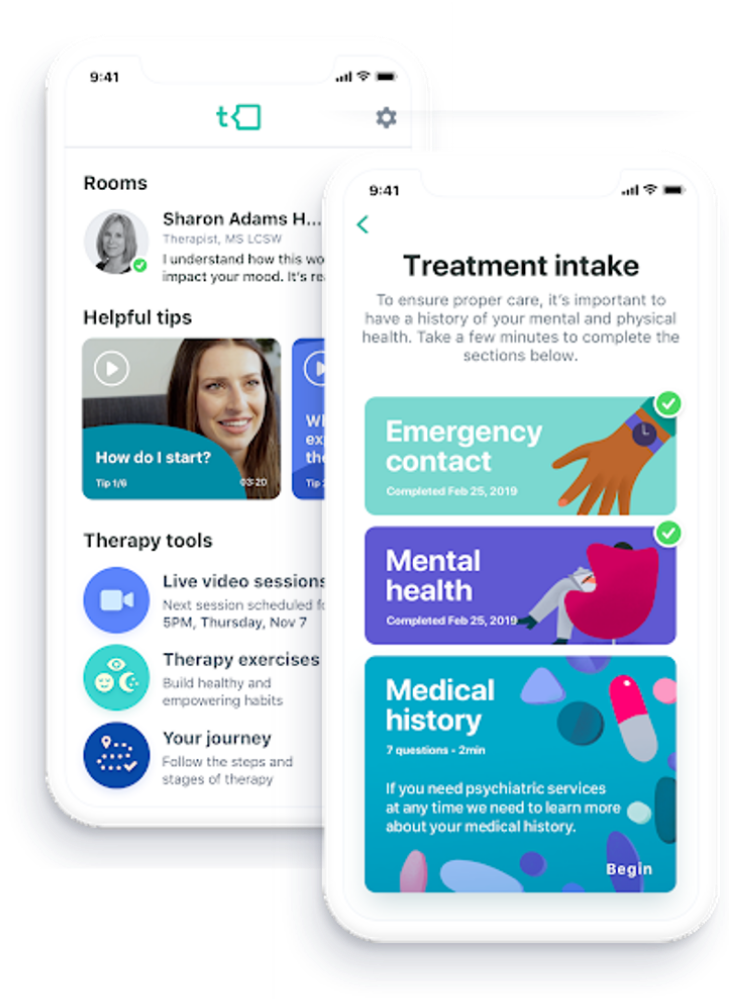Prozac (fluoxetine): online prescription management for depression, OCD, & panic disorder
Psychiatry appointments online, from anywhere. Our licensed psychiatric clinicians diagnose and treat depression and obsessive compulsive disorder. Learn more about medications like Prozac.

What is Prozac?
Prozac (or fluoxetine) is a selective serotonin reuptake inhibitor (SSRI). It treats depression, obsessive compulsive disorder (OCD), panic disorder, and bulimia nervosa by increasing the amount of serotonin in the brain.

What is Prozac used for?
Prozac (and its generic version, fluoxetine) can be prescribed to treat a number of mental health conditions, including depression and OCD. Some conditions Prozac treats include:
How Talkspace psychiatry works
Complete a brief assessment
Answer a few questions and we’ll match you with an online prescriber who meets your needs
Schedule your initial session
Once matched, schedule your live video psychiatry session.
Begin your treatment
Your online psychiatry prescriber will personalize your treatment, which may include medication and follow-ups.

Connect with a licensed prescriber
Get specialized psychiatric treatment from a licensed prescriber — all from the comfort of your home.


FREQUENTLY ASKED QUESTIONS
With Talkspace Psychiatry, the first step toward getting help is to complete a brief assessment. Once you’re matched with a psychiatric clinician, you’ll have a live video session where you’ll share how you’ve been feeling. From there, they’ll prescribe a treatment plan—if that includes a prescription (such as Prozac), you can pick it up at your pharmacy.
Prozac (fluoxetine) is taken in different forms, dosages, and frequency, depending on your mental health condition and the treatment plan prescribed by your provider. Often, individuals are started on a low dose of Prozac and then the medication is slowly increased. It is usually taken once a day with or without food.
It’s important to take Prozac and its generic form, fluoxetine, exactly as prescribed by your clinician. Side effects of Prozac are often mild, but can include nausea, headaches, increased sweating, nervousness, diarrhea, trouble falling or staying asleep, dry mouth, and more. Seek immediate medical attention if you experience grinding teeth, , fever, vision changes, difficulty breathing, seizures, itching, joint pain, irregular heartbeat, abnormal bleeding, dizziness, or fainting.
Prozac is a medication that has been approved by the Food and Drug Administration for the treatment of major depressive disorder (MDD), obsessive compulsive disorder (OCD), panic disorder, bulimia nervosa, and premenstrual dysphoric disorder (PMDD). It can also be used “off-label” for a variety of other eating disorders, social anxiety disorder, post traumatic stress disorder (PTSD), generalized anxiety disorder (GAD), and others. Your mental health provider will best be able to determine how to prescribe Prozac for your particular needs.
Prozac can be used as an “off-label” medication for generalized anxiety disorder. “Off- label” means that the medication hasn’t been approved by the Food and Drug Administration for that particular use, but it can still be helpful in alleviating symptoms. Your mental health provider should provide you with a full explanation and justification for their recommendation of an “off label” medication for your treatment plan.
Although Prozac doesn’t directly change your personality, people taking Prozac or other antidepressants can experience adjustments in their personality for various reasons. Often, waiting for improvement can put a strain on them, or the symptoms of the medication influence the way they go about their life. Overtime, it has been seen that Prozac causes a better, more stable mood.
As of now, there are no known side of effects of taking Prozac for long term use. When used as directed, it is a safe treatment for the conditions your doctor prescribes it for.
There are several different medications your psychiatrist may prescribe for depression or OCD.
Other medications for OCD include:
- Paxil (Paroxetine)
- Zoloft (sertraline)
Other medications for depression include:
- Prozac (Fluoxetine)
- Celexa (Citalopram)
- Zoloft (Sertraline)
- Lexapro (Escitalopram)
- Paxil (Paroxetine)
